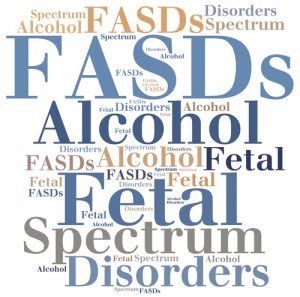
Federal support would be provided to help individuals and families affected by Fetal Alcohol Spectrum Disorders (FASD) under a bipartisan, bicameral bill introduced by U.S. Sen. Lisa Murkowski (R-AK).
“While the physical, mental, and behavioral impacts of FASD are incurable, we can push for policy initiatives to prevent it in the first place,” Sen. Murkowski said. “That’s why this legislation works to improve research, raise awareness, and plus-up resources to help protect future Alaskans from this heartbreaking reality.”
The Advancing FASD Research, Services, and Prevention Act of 2021, also known as the FASD Respect Act, would amend the Public Health Service Act to reauthorize and extend the Fetal Alcohol Spectrum Disorders Prevention and Services program. Sen. Murkowski on June 24 sponsored S. 2238 with original cosponsor U.S. Sen. Amy Klobuchar (D-MN), while U.S. Reps. Betty McCollum (D-MN) and Don Young (R-AK) on the same day introduced companion legislation, H.R. 4151, in their chamber.
If enacted, the measure would create the National Advisory Council on FASD consisting of parents, advocates, professional organizations, and experts in the field who would submit recommendations to the National Institute of Alcohol Abuse and Alcoholism and develop new recommendations for Congress, according to a summary provided by Sen. Murkowski’s office.
Additionally, the bill would direct the Secretary of the U.S. Department of Health and Human Services (HHS) — acting through the Director of the National Institutes of Health and in coordination with the Interagency Coordinating Committee on Fetal Alcohol Spectrum Disorders — to establish a research agenda for FASD, award grants, and enter into contracts and cooperative agreements with public or private nonprofit entities, the summary says.
Among several other provisions, the bill would create a program at the Health Resources and Services Administration to build state and tribal systems to identify, treat and support individuals with FASD, and would direct HHS to establish a Center of Excellence to build local, state, tribal and national capacities to prevent the occurrence of FASD.
“Unfortunately, FASD rates in Alaska are among the highest in the United States. It’s a heartbreaking reality, but the effects of prenatal exposure to alcohol and other substances can have a long-standing and devastating impact on children, their families, and communities as a whole,” said Sen. Murkowski. “The infants — which have been exposed to prenatal substance abuse but do not receive the appropriate treatment and developmental support — are at high risk of ongoing mental, emotional, and even physical challenges.”
The National Organization on Fetal Alcohol Syndrome is among the groups that have endorsed the bill.
“Since the 109th Congress, I have led on FASD legislation, and I’m not going to give up,” Sen. Murkowski said. “By supporting families, and mothers, early on, we’re giving their babies a fighting chance.”



